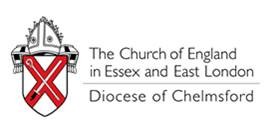Take a degree course in Business Studies or any business related area such as Administration, Finance, Human Resource Management or Marketing, (some top Business courses require a high level of Mathematical ability so A-Level Mathematics would be an advantage for some students). This will support direct entry into employment in any area of business.
Business Studies
| Exam Type: | Linear 2 year A-Level |
| Exam Board: | AQA |
About the Course
The Business Studies curriculum seeks to develop skills, knowledge and practice in learners which transforms students into tomorrow’s business citizens.
The curriculum explores the four functional areas of business and the interdependence of these areas. As developing business citizens, leaners will understand the different environments in which businesses operate, consider constraints that inhibit success and analyse the opportunities that these different environments pose.
Leaners will consider how different business contexts affect business decisions. They will learn to use quantitative and qualitative data in making business decisions.
The curriculum allows learners to develop critical thinking skills that allow them to challenge and investigate business theories and learning.
The successful implementation of the curriculum will allow students to explore real business issues and investigate how business works. This will help create astute and business-savvy citizens of the 21st Century.
The impact of the pandemic on business in the UK and internationally makes the intent, implementation and impact of this curriculum area all the more significant of St Edward’s Academy students.
The course provides a smooth transition from GCSE Business Studies to A-Level, but GCSE Business Studies is not necessary to take this subject at this level. It is expected that students who have already studied Business at GCSE have obtained at least a Grade 6, otherwise Grade 6 in Mathematics and English is necessary to cope successfully with the financial and written aspects of the course.
You will:
- develop a critical understanding of organisations, the markets they serve and the process of adding value.
- consider the internal workings and management of organisations, in particular the process of decision – making in a dynamic external environment.
- become aware that business behaviour can be studied from the perspectives of a range of stakeholders including customers, managers, creditors, owners/shareholders and employees.
- be aware of the economic, environmental, ethical, governmental, legal, social and technological issues associated with business activity.
- acquire a range of skills, including decision making and problem-solving in the light of evaluation and, where appropriate, the quantification and management of information.
- be aware of the current structure of business and business practice in different sectors and environments, including large and small organisations, manufacturing and service industries, local, regional, national and multinational.
- apply numerical skills in a range of business contexts.
Core Content:
1 What is business?
2 Managers, leadership and decision making
3 Decision making to improve marketing performance
4 Decision making to improve operational performance
5 Decision making to improve financial performance
6 Decision making to improve human resource performance
7 Analysing the strategic position of a business
8 Choosing strategic direction
9 Strategic methods: how to pursue strategies
10 Managing strategic change
To gain an A-Level in business assessment will take place at the end of the course, covering ALL subject content.
A-Level
Paper 1: Assessed on any content from topics 1–10, (written exam: 2 hours)
Paper 2: Assessed on any content from topics 1- 10, (written exam: 2 hours)
Paper 3: Assessed on any content from topics 1– 10, (written exam: 2 hours)
Curriculum Theological Underpinnings
“You may say to yourself, ‘My power and the strength of my hands have produced this wealth for me’. But remember the Lord your God, for it is he who gives you the ability to produce wealth, and so confirms his covenant, which he swore to your ancestors, as it is today.”
(Deuteronomy 8: 17-18)
Business is a good thing that drives the economy and creates wealth to benefit us all. However we must not boast or forget that our ability to work or create wealth is depended on God’s good creation and environment and so we should be wise to remember others and the impact we have on the environment.






